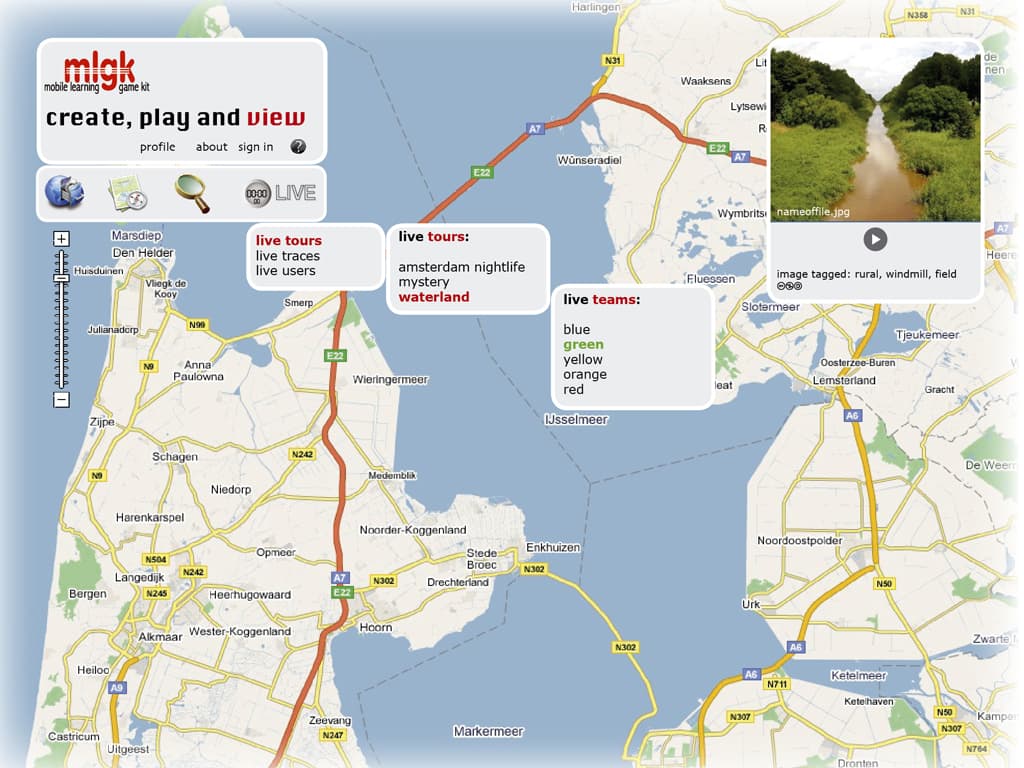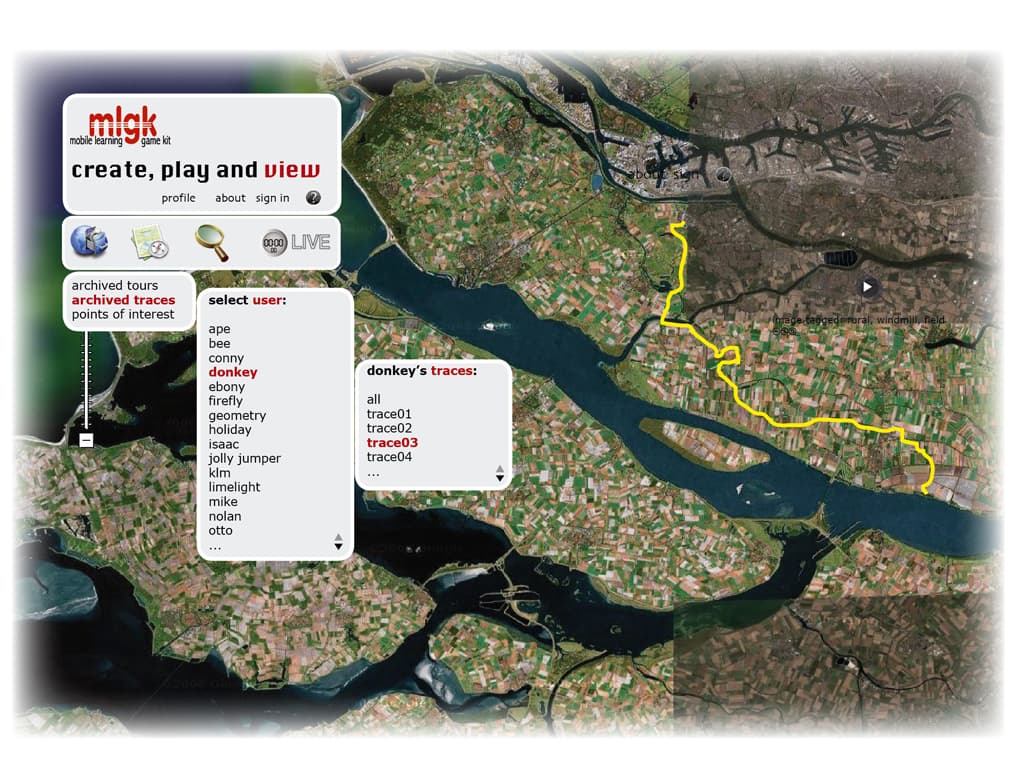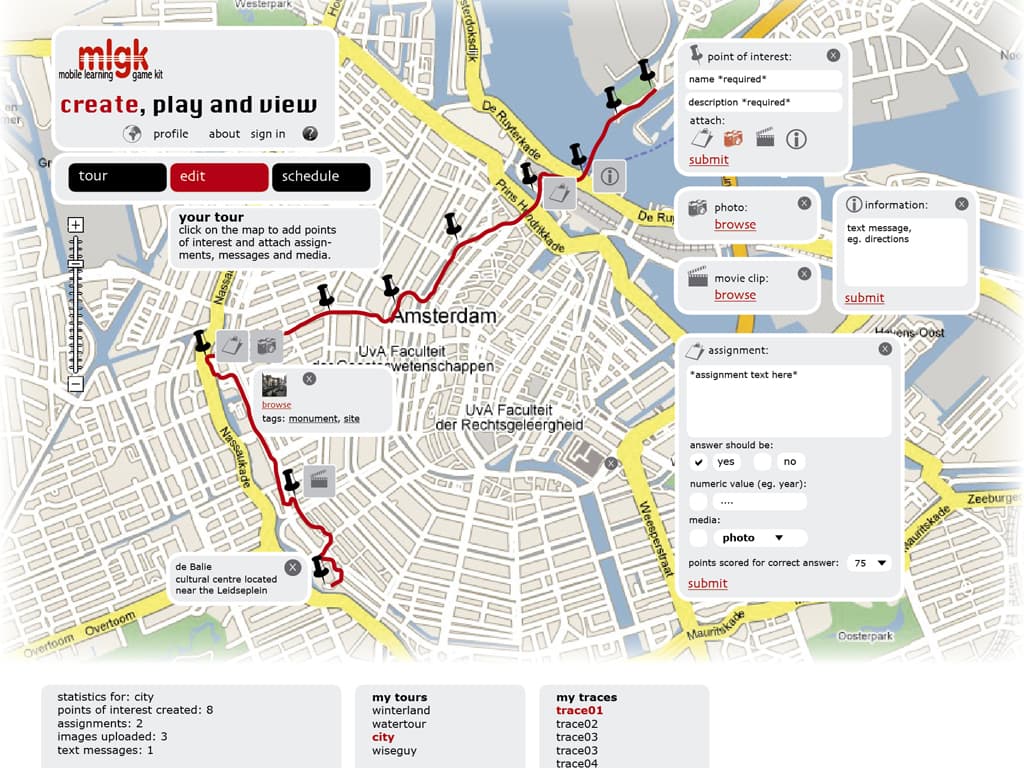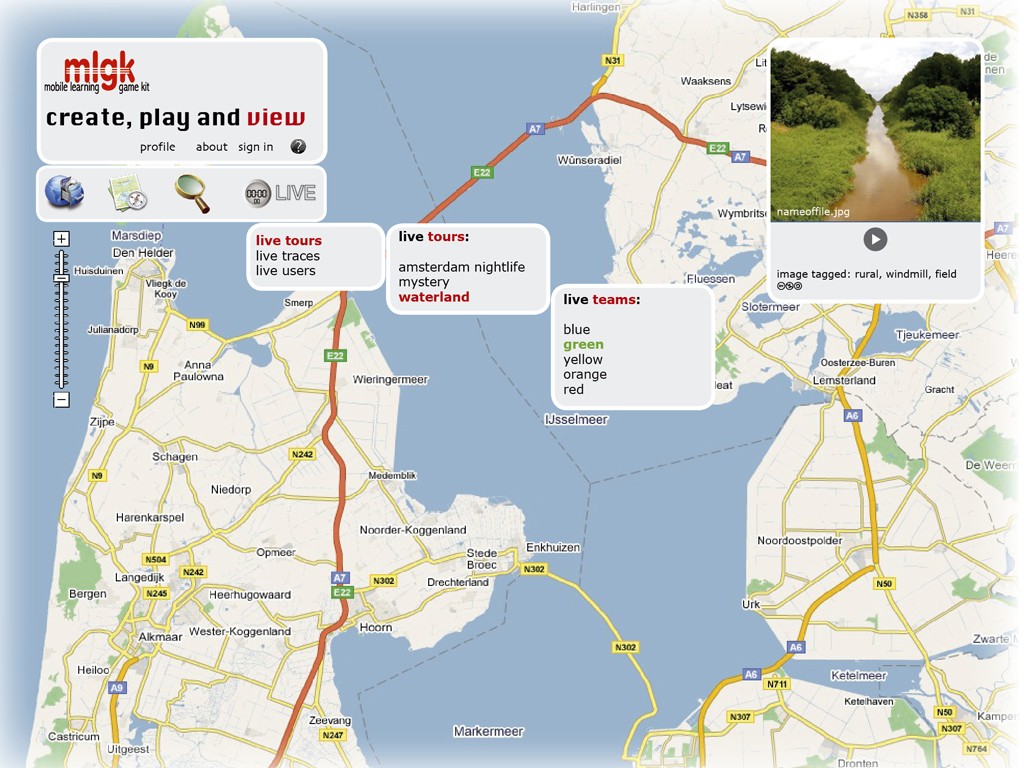"Reality is a virtual world of its own": that was the main message wehen developing the Mobile Learning Game Kit (MLGK) in 2006.
Everyday live and work are an inexhaustible source of information. We process this information frequently without it even noticing it, we process, store and use it to be able move around, to adapt our surroundings to our needs and wishes, or to adapt ourselves to the requirements of our environment. Long before gravitations has been explained to them, children know that an object which you release falls to the ground: they understand what gravitation is because the term is an explanation for their own experience. The MLGK has been developed on the basis of this fundamental learning process.
Today's cities overload inhabitants and users with diverse information that is often changing at high speed - through traffic lights, billboards, signs, shop windows, cinema posters, moving screens, street artists, commercial folders and political leaflets, muzak and music, video walls and 'urban screens'. The urban surroundings also carry more stable information the historically grown explanation of the city: the architectural style tells in which period, for whom, and to what purpose a building was built (and the new purposes for which they have been reused over the course of years); the different 'centres' that emerged over the course of time on one or several locations tell of economic, technological, traffic, social and cultural developments that have (or have not) taken place (city centre, shopping centre, business centre, entertainment centre, financial centre, community centre, cultural centre, media centre, recreation centre, tourist centre, etc.); residential areas tell stories of different peoples living there at the same time or after each other, etc.
The city is literally a labyrinth of massive information and data networks that interlink and also disconnect in sometimes quite unexpected ways. Many of these networks are just like gravitation: we know them, however, we often do not know what it is that we actually know. 'Learning' consists to a large extent in naming this knowledge and making it explicit.
The MLGK offered a way to trace this mostly unnoticed information, to collect, arrange, and connect it with existing documents and knowledge and possibly to unveil completely new links that have not yet earlier been noticed. The MLGK guided its users by means of specific tasks to certain spots in the city, where they have to collect data on site in the form of photographs, videos, interviews, etc. Using the Internet they have to research additional information from digital files, documents, collections. They create a virtual environment that visualises all information collected so it can be further examined or presented to third parties.
The MLGK was developed as a tool kit for teachers, training, educational institutions and actually anyone who wanted to explore the city in a playful way. The MLGK was suitable for various educational purposes at every educational level. The MLGK could be used with specific content or games tailored to the specific goals of specific courses and to the needs, levels and capacities of specific target groups.
The knowledge and experience acquired from this project was used to develop the 7scenes mobile platform for tours and games.



Meta data
Project duration
Partners
- Universiteit van Amsterdam
- Hogeschool van Amsterdam
